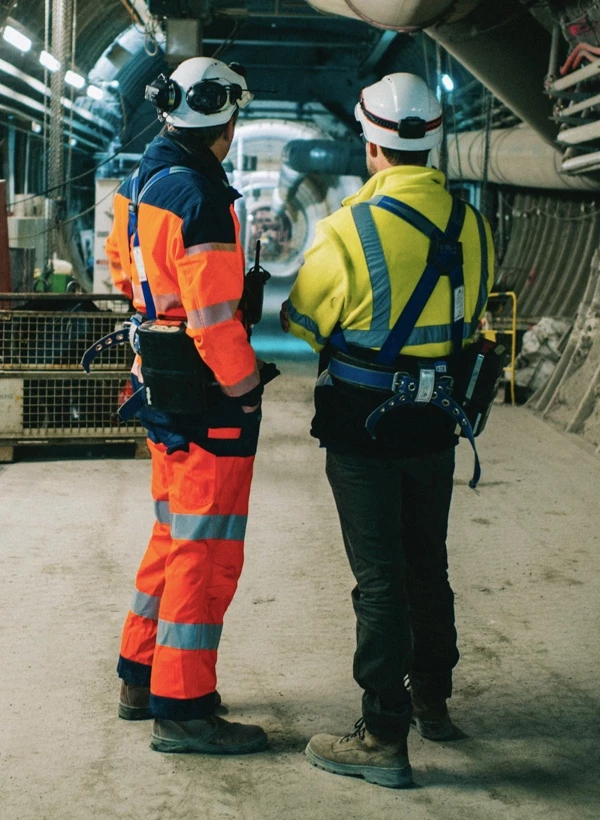
The story of Lemer Pax began in 1970 when the Lemer foundry, specialising in lead alloys, created a filiale dedicated to the use of lead to insulate against ionising radiation (Pax means "anti-x protection"), mainly in the medical sector. In 2005, under the leadership of Pierre-Marie Lemer, then Managing Director, the filiale decided to go its own way and became completely independent. Nearly 20 years later, the company based in La Chapelle sur Erdre, Loire-Atlantique, relies on 85 employees, an exceptional capacity for innovation and R&D and a turnover of 20 million euros, to put its unique expertise at the service of a single watchword: "Protecting Life". Interview with Valérie Chevreul, its Managing Director.
What are the activities of Lemer Pax within the nuclear industry?
Lemer Pax produces equipment, radiation protection solutions and materials for the research, radiopharmacy and electronuclear industries. In the latter sector, our customers are the major nuclear site operators such as EDF, Orano and the CEA, either directly or through their suppliers.
In the field of shielded windows, we have, for example, developed a particular technology of windows made of optically assembled glass sheets, which are a very interesting alternative to single-piece lead glass. Most of the radiation protection equipment we produce for the nuclear industry is custom-made to exacting specifications. For example, we have equipped the LIDEC laboratory (EDF, CNPE de Chinon) with shielded portholes weighing up to six tonnes.
In addition, we manufacture small containers for the transport of radioactive materials, such as the COLIBRI, which is going to be approved, in type B, for transport on public roads.
Lemer Pax's presence on the nuclear power industry market is still relatively recent. Nuclear medicine remains Lemer Pax's historical market; in this field, in addition to the protections intended for health professionals, we have acquired an expertise that allows us to intervene today in the production cycle of isotopes intended for cancer diagnosis and therapy. We design, produce, install and maintain shielded radiopharmaceutical production cells in which radioelements are produced. Lemer Pax also works right up to the patient's arm, supplying equipment and autonomous units for fractionation and injection of radiopharmaceuticals. Lemer Pax is already exporting these innovative solutions all over the world.
What is the latest news about Lemer Pax?
We have a major success in the news: a few weeks ago, a newly developed anti-neutron material for ITER was qualified. The development of this material has created a lot of excitement and pride in-house. Particularly effective against neutrons, this light and innovative material should quickly find other industrial outlets.
We are also seeing strong demand for our windows, both on the national and international markets. In the radiopharmaceutical field, production cells have just been delivered to Martinique; other cells are in the process of being delivered, notably to the Cycéron research centre in Caen.
What are the prospects for Lemer Pax in the medium and long term?
We are very optimistic about portholes, with great projects like the Pallas test centre in the Netherlands. Iter also offers great opportunities, with the Hot Cell Complex (HCC) maintenance site.
In the medical sector, we are developing a technology for treating radioactive effluents in hospitals. Today, these effluents are stored while waiting for their decay; we are looking to treat them to concentrate their radioactivity and directly reduce the volumes, without having to store them.
Although Lemer Pax was initially created to take advantage of the radioprotective properties of lead, it quickly sought to develop lead-free solutions. Indeed, for the past seventeen years, we have been conducting a project that is now in the industrialization phase; the result of fundamental research and a thesis at the Nantes Institute of Materials, the Novashield® Glass project involves the development of a new transparent material that is not mineral glass, and which will have the ability to stop neutrons and gamma and X-rays. It could be used in particular for glove boxes at the CEA and Orano Melox plant, and for the protection of carers. We have received support for this project from the BPI, as part of the call for 'strategic sectors' projects under the France Recovery Plan. The first industrial delivery of this project is planned for this year.
These rich prospects, together with the growth of our radiopharmaceutical cell activity, have led us to decide to expand our production capacity; a second site of 6,000 m2 will open in December 2023, still in the Nantes area.
